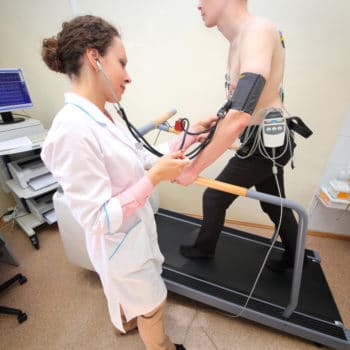Why We Love It
-
$101,260Potential Avg. Salary*
-
Growing DemandJob Outlook
* Salary & growth data is based on the recent Bureau of Labor and Statistics data published at https://www.bls.gov/oes/current/oes291171.htm for 29-1171 Nurse practitioners 11/2021. Based on national data, not school-specific information. Conditions in your area may vary.
With a bachelor of science in nursing (BSN), you’ll be well-prepared to take the NCLEX exam—the national exam that leads to licensure as a registered nurse.
During your studies, you’ll combine classroom education with practicums, gaining knowledge of and experience with the different tasks and roles of a nurse. Upon graduation, you can become licensed and work in hospitals, doctor’s offices, and clinics.
What is a Degree in Nursing?
A bachelor’s degree in nursing prepares students for both the NCLEX licensing exam and a career as a registered nurse. Students study a variety of topics, from liberal arts courses to education in medical practice.
Most programs provide a two-fold education. Students study nursing topics in the classroom, but they also take residencies and internships in the field. This allows them to experience different nursing careers by watching experienced nurses and doctors work and conduct their responsibilities.
While a four-year degree isn’t necessarily a requirement for becoming a registered nurse—the exam can be taken after earning only an associate’s degree—students with BSN degrees tend to earn higher pay than those with only associate’s degrees.
Additionally, with a bachelor’s degree, you are able to continue your education if desired, earning a master’s degree to work as a nurse practitioner, nurse anesthetist, or nurse midwife. For this reason, a BSN provides a great education for a variety of careers.
Recommended Schools
What Courses Would I Take For a Major in Nursing?
- Fundamental Concepts & Skills for Nursing Practice
- Genetics and Genomics
- Pharmacology
- Public Health Nursing
- Nursing Care of the Adult
- Gerontological Nursing Practice
- Continuum of Care for Childbearing Families
- Continuum of Mental Health Care
What Jobs Can You Get with a Degree in Nursing?
It’s expected that nurses—along with most other medical professions—will have a significantly increased demand in the coming decade. This increased demand is expected because of the aging Baby Boomer population.
As this large generation reaches and surpasses retirement age, it’s expected to significantly increase the demand for medical care and, as a result, medical professionals to provide that care. For this reason, there should be many new nursing positions open for new BSN graduates.
How Long does it take?
A bachelors in Nursing will have a typical length of 4 years in a full time schedule. That said, there are many ways to speed up the timeframe by either taking more units via online coursework, community college, or taking free classes at OnlineDegree.com that could transfer to universities in the US.
Online Nursing Degree
Online nursing programs are available by a number of universities. They can be beneficial to prepare a student for the licensure or for nurses working with an associate degree to get a bachelor degree and improve their career growth. Almost all nursing programs require completing an internship for a specific period at an accredited place for graduation.
Additionally, you should expect that on campus degrees may have an advantage compared to online programs due to the practical nature of the profession.
What Can You Do With a Nursing Degree?
Nursing plays a major role among healthcare professions providing direct support to patients to maintain the quality of life of patients. In many cases, nurses provide prescription and other healthcare services following the orders of physician, however, in other settings including wars and epidemics nurses are allowed to work independently or following minimal supervision.
Nurses are responsible for the regular daily care of hospitalized patients after initially diagnosis of the disease or after surgeries. Nursing graduates may be allowed to join medicine degree programs with shortened path.
What does a nursing science student learn?
The focus of the nursing is to maintain health and quality of life while physicians focus on curing a disease or health condition. Nursing is offered by many universities as a vocational degree which means that there is more focus on the practical training for the profession. Nursing students study courses related to the human body, diseases, medicines and medical interventions.
The following list shows the courses that are commonly offered in a nursing program:
- Nursing practice and theory: this is an introductory course that presents the role and fundamentals of the nursing profession.
- Anatomy: knowing the human body is an essential requirement for providing effective healthcare services.
- Bioethics: this course introduces the ethical rules or concerns related to nursing as the patient privacy and confidentially of the patient.
- Fundamentals of microbiology: infection control is one of the main roles of nursing and having knowledge in microbiology is essential for this purpose.
- Nursing research: this course introduces the tools and methodology used in research related to nursing.
- Nursing care of the older adults: this is a specialized topic in nursing for providing healthcare services to geriatric patients.
- Public health nursing: this topic has attracted much interest recently with the spread of the COVID-19 pandemic.
Now I have the nursing degree…where can I work after graduating?
Nursing among other healthcare professions are highly rewarding careers.
There are a number of specializations that you may consider in nursing:
- General nursing practitioner: This is the entry level for nursing working in a variety of primary care settings. They also have the chance to choose a specialization during their work.
- Clinical Nurse Specialist: It refers to nurses who have specialized in a specific clinic or disease. Specialization enables you to get more experience and improve your reputation. You may also get involved in medical research activities.
- Psychiatric nurse practitioner: this is a choice for nurses interested in mental health. They work with psychiatric physicians for treatment and counseling of patients.
- Certified nurse midwife: This specialization involves working with obstetrics, labor and delivery, and prenatal care. In some states, certified nurse midwifes are allowed to run their own clinics.
- Neonatal intensive care nurse: the role of this nurse is to provide care to babies in critical conditions. The job is preferred for people who love working with babies but it can get very stressful and emotionally demanding to watch these babies suffering from diseases or even dying at some instances.
- Pain management nurse: the role of this type of nurses is to provide care, medications and other forms of pain for patients after surgeries or patients with chronic pain conditions as arthritis or some forms of cancer.
- Nursing administrator: if you do not like getting directly involved in the healthcare services, you can still work in the administrative work for nursing including budgeting, staff and human resources management.
- Gerontological nurse practitioner: older patients require special type of care due to the existence of multiple health conditions that should be considered.
- Nurse educator: you will be responsible for teaching and training of nursing students or continuing education for working nurses.
- Other nursing specializations: informatics nurse, critical care nurse, health policy nurse and family nurse practitioner
Should I choose a nursing degree?
Nursing is mainly about providing care to patients who need special kind of support. The importance of this profession got even more recognition after the spread of the COVID-19 pandemic which required immense efforts from the healthcare teams. Nursing is a challenging and stressful profession but it is a rewarding career.
Working as a nurse requires the following personal skills:
- Cultural awareness: a nurse should understand the beliefs and decisions of the patient which may have religious or cultural backgrounds.
- Professionalism: this is critical for all healthcare professions as you may need to deliver difficult decisions to the patients. You should always remember that what you say and your actions reflect your moral values and ethical principles.
- Attention to details: few details about a patient can be lifesaving and missing those details can cause a disaster.
- Team working skills: Most of the nurses have to work daily within a larger healthcare team including physicians, nurses and pharmacists. Their work must be synchronized to provide the best healthcare to the patients.
- Communication skills: nurses may represent in many situations the link between the physicians and the patients and they should communicate in a professional, effective and clear way.
Recommended Schools
Best Jobs for Nursing Degrees
With a bachelor’s degree in nursing, you can sit for the NCLEX exam to become a licensed registered nurse. Additionally, if you choose to continue your education later in life and earn a master’s degree in nursing (MSN), you can become a nurse anesthetist, nurse practitioner, or nurse midwife.
You may also take on roles outside of the healthcare industry, working as a school nurse or in public health.
How to save time and money
Our mission is to help you to avoid paying full price for college. We want your Nursing degree to be affordable and accessible. Here’s how you could save:
Create Your Free SmartPlan

There are many ways to make college affordable and accessible.
That’s why we created a helpful tool called SmartPlan.
It’s free, and helps you find potential ways to save and tons of information about each school you’re considering
Think of it as your “college blueprint”, to help you instantly craft a path to your degree:
- Which Colleges Match Your Needs
- Ways You Could Save Time & Money
- Free Courses You Could Take for Credit
- Valuable Data and Insights on Each College
- Detailed Steps You Should Take!
See what’s possible for you and generate a free plan within just a few minutes
Create My SmartPlanGet an Associate’s Degree in Nursing First
With an associate’s degree in nursing (ADN), you can take the NCLEX exam to become a registered nurse (RN). Then, you can begin gaining experience in the field sooner—and earning an income—while you pursue a bachelor’s degree.
Additionally, many colleges offer abbreviated programs for current RNs where they can take less than the full four years of education required for non-degree holders.
You Might also be Interested in
Many visitors who look for a degree in Nursing are also interested in the following degrees.













